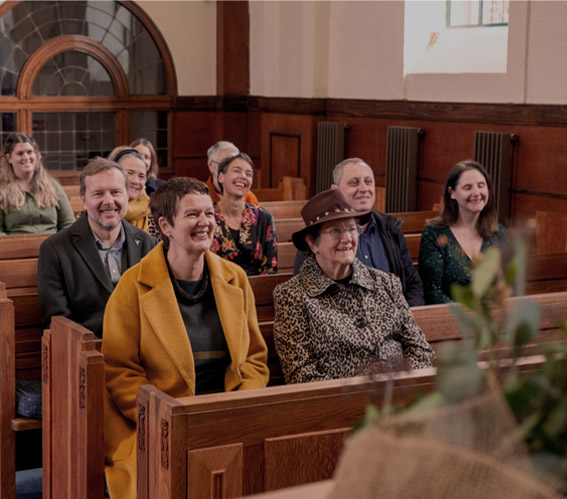The Importance of Having a Will
All the love, adventures, sorrows, friendships, and laughter you’ve experienced make up squares in the quilt that is your life. Among the beauty of our experiences is a truth we sometimes hesitate to acknowledge–the inevitability of our mortality. While it may be uncomfortable to contemplate our departure from this world, embracing the concept of legacy through a will is a gift to those we leave behind.
Not only does your will steer your final legacy, but it removes a burden from your loved ones at a time when they will be dealing with the grief of loss. Your will empowers both yourself and your loved ones. Leaving no will is like failing to assemble all the squares in your life’s quilt. It turns what should be a beautiful legacy into a jumbled mess. Those who inherit it are left to sort it out with little or no direction from you.
Here, we will navigate the importance of a will, illuminating the value of this critical document in steering your legacy, guiding your grieving loved ones, and reducing the bureaucratic and financial burdens associated with your death.
Here are some of the things your will can do:
Clarify Who Receives What
Outlining who receives what funds, items, and property is the first thing that comes to mind when most people think of the importance of a will. This is your will’s primary job: naming beneficiaries for your assets.
This roadmap for distributing your belongings can take many different forms. You may want to see that your neighbor receives the piece of art from your living room she frequently admired. Your will can ensure that the charm bracelet your daughter always loved goes to her.

A will can direct that your share of a family farm goes to your adult nephew, who has spent years tending the soil. If you want to support the college education of a young person in your life, you can use your will to cover their tuition.
You may have promised funds or assets to various people in your life, but without a will, there is no way to ensure that they end up in the right hands. The farm could go to the son from whom you are estranged. Your estate could be forced to sell your bracelet so that the proceeds can be split among family members.
In addition to making stipulations for specific items, your will can also name beneficiaries for any items not specifically listed. The remainder of your property is called the “residuary” of your estate. You can direct that anything not otherwise mentioned go to named individuals, organizations, or charities.
Often, these are conversations we have with people in our lives, but they mean little unless they are made official and legal. A will does that for you. If discussing the distribution of your assets feels uncomfortable, your will is even more critical. Imagine that you thought about leaving something to a friend or child but never felt comfortable mentioning it. Your will can formalize the intents you never found the right time to voice.

Choose your Child’s Guardian
When you are a parent to minor children, the importance of a will is even more pronounced. Your will is the mechanism for naming who will care for your children in the event of your death. While many people consider wills something that older people should have as they enter the final chapters of their lives, parents of young children need a will more than nearly anyone else.
If your child’s other parent survives you, typically, they will receive custody. If both parents die, the question of the designated guardian will heavily influence the outcome of the rest of your child’s life.
By nominating a guardian, you pick the person who will be the stand-in parent for your child. They will have the same responsibilities as a parent, including providing food, housing, and daily care, as well as living with your child and guiding them to adulthood.
That’s too big a decision to leave up to a court that knows nothing about you, your child, or the friends and family who could care for your child. Your will is your opportunity to guide your child into the best situation possible.
Help Prevent Family Disputes
We’ve already discussed your beloved charm bracelet and the share of the family farm. If you die intestate–without a will–these issues can create tension or, worse yet, irreparable rifts in the family you leave behind. If the daughter you promised that bracelet to doesn’t receive it according to your wishes, that could lead to an argument between all the siblings.
Family dynamics are always challenging. Add to that the fact that no one is at their best when grieving the loss of a loved one.

If you don’t have a will to serve as a guide to your family, those factors can lead to tension, fights, and lasting damage to relationships.
The nephew, to whom you promised your share of the farm in exchange for his years of service, will likely feel deeply slighted if the land instead goes to your sister. Your sister may think that your nephew is being greedy, trying to get something he doesn’t deserve. This disagreement can cause a lasting rift.
Without your final word, in the form of your will, your promises won’t always be kept. Eliminating the guesswork, ambiguity, and misunderstandings that come from not knowing your wishes prevents this tension. You don’t want your legacy to be fractured relationships, broken friendships, and disowned relatives. Creating a will can help prevent that from happening.

Guide your Funeral
It may feel uncomfortable to think about the specifics of your funeral. But it will also be uncomfortable for those you leave behind if they have to guess what you’d have wanted. It can be incredibly stressful to make an uninformed judgment about the wishes of a departed loved one. The importance of a will isn’t just deciding who gets what and how your possessions are distributed. Creating a will is also about ensuring you are remembered and honored in ways that feel appropriate. Better still, your will can keep your funeral from becoming an additional burden to your family and friends.
In your will, you can name a funeral executor who is in charge of planning and executing the ceremony. You can also mention a preferred location, officiant, desired final resting place, how you’d like your remains to be handled, or even favorite music you would like to be part of the service. How specific you want to be is entirely up to you. The critical part is that you include enough details to guide your loved ones so they don’t have to guess and worry they aren’t honoring you in the ways you’d like.
Your will’s funeral guidance may not be legally binding. However, it will still be a gift and a comfort to your loved ones. Your will can remove stressful and difficult decisions from their shoulders as they deal with the emotional, financial, and administrative aspects of your passing.
Save Money
You’ve spent your life working hard and managing your finances. It makes sense that you’d want as much of what is left to go directly to your heirs or causes that are important to you.
Most estates have to go through probate court upon the death of the owners. Probate begins the legal process that oversees the distribution of your assets according to your wishes and legal requirements. If you don’t have a will, your estate enters a complicated process called intestate administration. If you die intestate, your state’s intestacy laws determine who gets your belongings. This is a longer and more complex process than probate. That means it is also more expensive.

During intestacy, the legal system may freeze your assets. As a result, your loved ones will have no access to those funds to help pay for funeral expenses, official copies of your death certificate needed to close accounts, and other vital services. Your death could become very expensive for those you leave behind if they can not access your accounts during this time.
The arduous and often pricey process of intestacy underscores the importance of a will.
Determine Who Manages Your Estate
When you write your will, you can nominate an executor. The executor is the person tasked with closing out your affairs and seeing that your wishes are followed.
The executor’s responsibilities are critical to ensuring that the residual issues from your life are handled properly and efficiently. This person is responsible for tasks like closing your bank accounts, selling your home (unless you’ve left it to a specific person), and notifying life insurance companies of your death. The executor may also file taxes for the estate and oversee other administrative requirements.
The executor’s role is to make sure everything is done legally, thoroughly, and according to your wishes. Because of the sensitive nature of their work and the access they have to all your assets, the executor should be someone trustworthy and responsible.
If you don’t name an executor, the court will pick one for you. The court doesn’t know that your eldest daughter is a notorious procrastinator, your brother has a difficult personality, or your estranged son is known for his sticky fingers with other people’s finances. The court’s choice for your executor may not be the person you’d want or the one who will make everyone’s life as easy as possible while they are grieving. Naming an executor in your will ensures this critical job goes to the person most capable of handling it.
Choose a Home for Pets
While the stakes may not feel as high as they are with naming a guardian for minor children, wills can also help with pets. Without the guiding information of your will, your pet becomes another piece of property the court will distribute, not unlike your toaster or your antique desk.
Your will can make sure your pet goes to a friend or family member who will provide the best care. As with children, you can also leave funds to that person to help provide for your pet’s expenses.
In most cases, the law doesn’t allow you to leave money to a pet. But you can use your will to ensure your pet ends up in the hands of someone who will love and care for it. If you pair this with using your will to leave some assets to your pet’s new caretaker, you can rest easy knowing that when you die, your furry, feathered, watery, or scaly family members will be well taken care of.


Handle your Digital Assets
People think of wills as documents that designate physical property or money. But what about your digital assets? What happens to your Facebook profile or your Instagram account?
Who receives access to your digital files, including photos, email archives, and videos? If you own a domain name, who retains control over it?
Your will allows you to answer all these questions.
You can direct control of specific digital assets, such as stating that your son should be able to control a particular social media account. Or you can name a digital executor to manage all these assets after you pass. You can also use your will to state your wishes about what happens to your accounts after you pass. This direction could mean specifying that your Instagram account be closed or a Facebook group you manage be turned over to a trusted friend.
Speak with your lawyer about the best way to provide password access to your digital assets. If you’ve directed that a valuable social media account go to your sibling, that isn’t very meaningful if they can’t access the account.
You may decide to use your will to ensure your relatives can enjoy the family digital photos you’ve been collecting for years. They won’t be able to access them if they are locked behind an unknown password. You can use your will not only to state who can access your accounts and what you wish to be done with them but also to ensure access is possible.
Support Cherished Causes
As you think about your mortality, you may wonder what legacy you will leave behind. Your will allows for a final way to impact the world around you. It’s an opportunity for you to use your estate to support the causes that were important to you during your lifetime. You can extend your legacy beyond your death.
Many charitable organizations have directions on how you can leave them a bequest that will allow them to continue their important work. Your will can direct support to them as a dollar amount, a percent of your assets, or a specific item. For example, some charities accept used vehicles, or you may want to leave an organization a piece of real estate they can use as a headquarters.
Not only can you use your will to leave assets to charities, but you can also specify how they should use those assets. For example, if you’d like to leave money to your alma mater, you can direct them to use it as a scholarship or to support an arts program. This allows you to use your will to carefully craft your legacy of generosity.
Leaving part of your assets to charitable organizations through your will extends the goodwill and generosity you exhibited during your life. It also offers an opportunity to support causes you would have liked to connect with but weren’t able to.
All these factors highlight the importance of a will. Your will is your opportunity to shape your legacy, direct your heirs in how to honor you and your wishes, and support the people and causes important to you during your lifetime. Your will is an act of self-expression, love, and empowerment for both you and your loved ones. It serves as the finishing touches on the quilt of your life. Don’t leave an unfinished mess for your friends and family to interpret. Use your will to ease their burden and enhance your personal legacy.
Find a Funeral Home Near You
Planning ahead for your funeral is a simple process. You don't have to wait! Make plans now.
